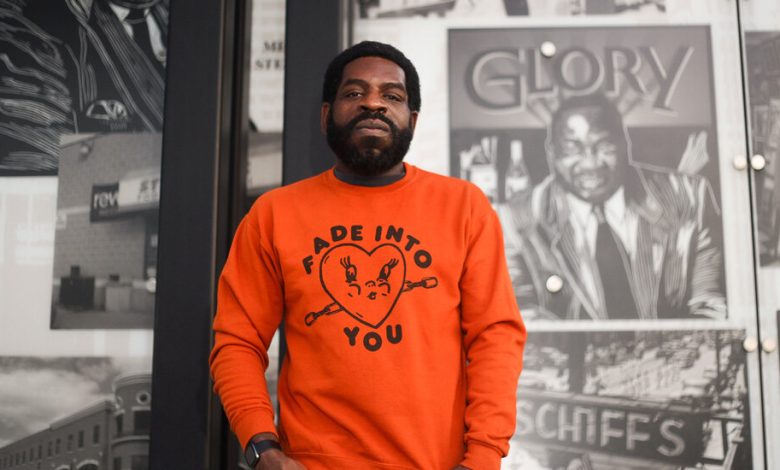Hanif Abdurraqib Just Misses His Dog

“It’s a real culture shock and emotional shock,” Hanif Abdurraqib said in a recent phone interview. The poet, essayist and cultural critic was describing his experience of being surrounded by hundreds of readers in a room while going on tour — made more challenging while fasting for Ramadan — for his best-selling book, “There’s Always This Year: On Basketball and Ascension.”
His reaction stems partly from the fact that he hasn’t done the usual fanfare that accompanies a book launch since 2019 — the last year he toured in person. And in that time, much has changed for Abdurraqib (more so, perhaps, than other writers): He bought his first home in the neighborhood of Bronzeville in his hometown, Columbus, Ohio; he released his best-known book, “A Little Devil in America,” part memoir and part love letter to Black performance in America; and he was awarded a MacArthur fellowship and an Andrew Carnegie Medal, among other accolades.
“I have a lot of gratitude, and everyone is really kind,” said Abdurraqib, 40, who is also a contributing writer for The New York Times Magazine. “Because I haven’t been on tour for so long, the responses to my work have grown in my time away, so it’s been good.”
He paused, adding: “I miss my dog” (Wendy, a Great Dane and Border collie mix).
“There’s Always This Year” is about basketball as much as “Titanic” is about a lost necklace; it’s about Columbus and LeBron James and the Cleveland Cavaliers, but it’s also about beauty and loss and time — which is to say, it’s about everything. The idea came to Abdurraqib in 2018, but he didn’t start writing it until 2022. “I knew that if I kind of just sat on it for a long time, some other door would open,” he said.
In another writer’s hands, topics like grief and mortality might sound bleak. But in Abdurraqib’s it becomes something akin to hope. “My relationship with grief, and my understanding of mortality, and my deep understanding of loss having lost many people,” he said, “it affords me a kind of urgency that’s propulsive, because of what I know about the flimsy nature of being here, capital H here.”
Those relationships, he continued, imbued him not only with a curiosity about how to survive, but a curiosity about how well he can love the people — and dogs — in his orbit. He said: “I’m clinging to the realities of my present life in a way that makes me want to stay, and stay, and stay.”
